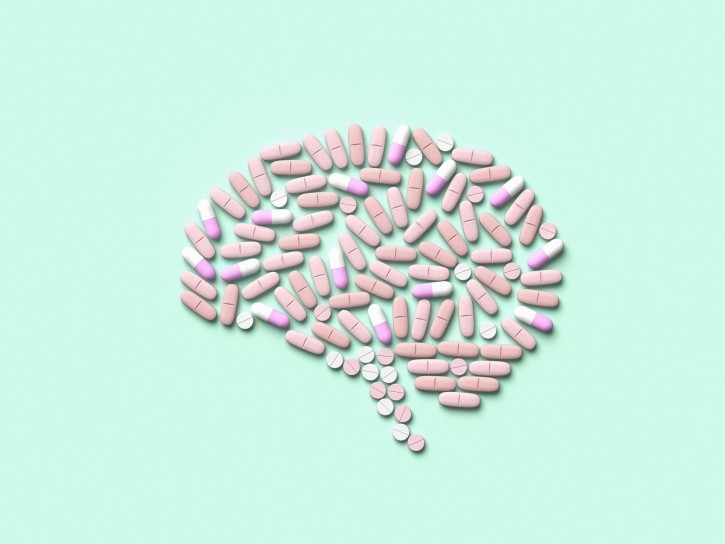Review: Multivitamins offer solid potential to prevent cognitive issues

The team from the Czech Republic reviewed the existing body of work on the role of micronutrients in relation to selected neurological diseases to establish the possibilities for therapeutic intervention.
Published in Nutrients, report findings highlight the importance of early diagnosis of dysregulations and adequate substitute micronutrient therapy to support brain health.
Multivitamins, in particular, demonstrate solid therapeutic potential, compared with single-vitamin-based options, they note.
“Multiple signalling pathways capable of boosting the antioxidative response are involved in the multivitamin approach. It is also possible that such adjuvant agents are most effective for prevention rather than treatment.”
Essential function
Low levels of micronutrients reduce antioxidant activity and can stimulate DNA, protein, and fatty acid oxidation and crosslinking, as well as mitochondrial adenosine triphosphate (ATP) depletion that contribute to the pathogenesis of neurodegenerative disorders, the team explain.
“Micronutrients have a crucial and irreplaceable role in intermediary metabolism. They are an integral part of the therapy of neurological disorders for their neuroprotective, antioxidant, and anti-inflammatory effects.”
Research has established the role of long-term abnormal levels of micronutrients in the etiopathogenesis of some neurological diseases that can lead to serious health complications.
Although the quantity of micronutrients in the human body is relatively low, they are essential for certain functions and abnormal homeostasis can have severe consequences.
Especially significant are lower plasmatic levels of vitamins A, B, C, D, and E, and Se, Cu, Zn, and increased levels of homocysteine (Hcy) (associated with cognitive impairment).
“The main function of micronutrients is their catalytic effect in enzyme systems, either as cofactors or as components of metalloenzymes. Other essential roles of micronutrients are antioxidant activity, modulation of cellular immunity, and tissue healing, either directly (vitamin C, 1.25-OH vitamin D, Se, Zn) or by using substances created through their induction (cathelicidin LL-37),” they write.
Symptoms generally appear after long-term deficiency and are often non-specific - manifesting in frequent infections, anaemias, and neuropathy, for example. In contrast, serious deficiencies are characterised by scurvy (vitamin C), osteomalacia (vitamin D), pellagra (niacin), haemorrhagic diseases (vitamin K), or night blindness (vitamin A).
Therapeutic strategy
Given the large diversity of micronutrients, it can be difficult to determine the amount and frequency of micronutrient dosage to support individual needs, the authors write.
However, evidence suggests administration according to universal guidelines for patients with inflammatory disease (to replenish depleted reserves) can prevent nutritional neuropathy or advanced neurodegenerative disease, and high-dose intake can reduce pathogenesis in patients with disease symptoms.
“We either know that the symptoms are related to or directly caused by a fatal decrease in micronutrient(s), or we expect a positive effect on the progress of the certain disease from the pathophysiology of certain micronutrients,” they comment.
“Therefore, it is a crucial therapy in the prevention of centra nervous system (CNS) damage during development, nutritional neuropathies, and neurodegenerative diseases.”
Counterproductive
The authors admit the clinical effect of micronutrient administration has been difficult to determine and administration can be counterproductive (such as supplementation with iron (Fe) in acute conditions), but “this does not mean administration is dispensable”, they say.
“Clear pathophysiologic consequences are proof of the dangerousness of deficiency. In comparison with a healthy population, the levels of some micronutrients are significantly decreased in all neurodegenerative diseases, so substitution has its benefits (improvement in cognitive functions, prevention of diseases), and it is recommended as adjuvant therapy.”
Other high-risk groups that could benefit from micronutrient therapy include patients with developing or existing risk of deficiency, ICU patients, burn victims and those receiving repeated haemodialysis, they add.
Source: Nutrients
Published online, September 25, 2023: http://doi.org/10.3390/nu15194129
“The Role of Micronutrients in Neurological Disorders”
Authors: Helena Lahoda Brodska, Jiri Klempir, Jan Zavora and Pavel Kohout












